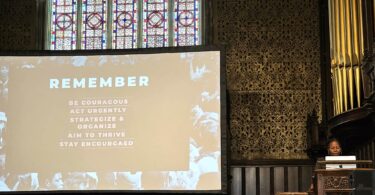Andrainjato Kiririoka, MADAGASCAR – My hometown is Andrainjato Kiririoka, a small village in Madagascar surrounded by mountains. The people there love and help each other. They are welcoming and not arrogant.
Listen to an audio recording of this story:
There are about 11,000 people in Andrainjato, the municipal area where my village is located. Our area is very beautiful, and there are many things to do, for example, hiking to the top of the surrounding mountains, like Andratongy and Fandana, and many others.
The people here make their living almost entirely from growing tobacco. When the rice planting season arrives, everyone plants rice. But there are also people who make money from raising livestock and selling goods.

As for education, there is a high school and a middle school in our village. All the children in our commune study here. Some students live far away and walk as much as two hours to get to school each day.
This is one reason that some students learn very little in school: they’re exhausted because the school is so far away, and they work hard in the fields. Additionally, many people don’t eat enough nutritious food, so there are cases of fainting at school due to hunger and fatigue.

There is a market in my village twice a week. This market is held by farmers to sell their produce such as corn, cassava, sweet potatoes, and many others.
Additionally, sellers from Ambalavao, a small city near my village, bring household goods like cooking oil, sugar, soap and more.



There is no electricity here. Residents mostly use kerosene lamps at night, however there are others who already use solar-charged lights.
There is a health clinic in my commune, however some people die before visiting the doctor because it’s so far away. There are not enough doctors and medicine at the clinic to meet the needs of the residents.
Theft is a major issue here. Thieves known as the dahalo often steal cattle, and there are others who steal crops from the fields. Some of these thieves target people’s homes and even kill the people who live there.
The road to Ambalavao is in bad shape, and accidents are common. These roads are a major reason my village is not developing.

Farmers should sell their produce in Ambalavao, where prices are higher, but it’s very difficult to transport goods there due to the road conditions. Instead, farmers sell their produce here in the countryside and receive very little money for their efforts, making it very difficult for them to improve their living standards.
Many children here – even elementary or primary school age – don’t study at school. Ones who are teenagers sometimes travel to the cities, even the capital, Antanananarivo, in search of jobs to help their parents. Often these children work as nannies or housekeepers for wealthier families.
Those who make me the saddest are the underage girls who become pregnant due to ignorance, with some giving birth at 15 years old. Other children are sent off to be married when they’re still young because their parents are unable to support them or their education.
There are many traditions in my community inherited from generations past. One example is Famadihana, a party to celebrate our ancestors and the construction of a new tomb. During the party, we wrap our family members’ remains in clean cloth and move them to the new tomb.
When there is a party or festival, it is tradition for women to wear lamba. Only the women wear lamba, which is a piece of cloth wrapped around the waist.
I really enjoy the activities of the young people here because we get together to play ball every weekend. I really love my community, and I feel very at home here.

Tahiry Andrianotahiana is a Junior Reporter with Youth Journalism International.



